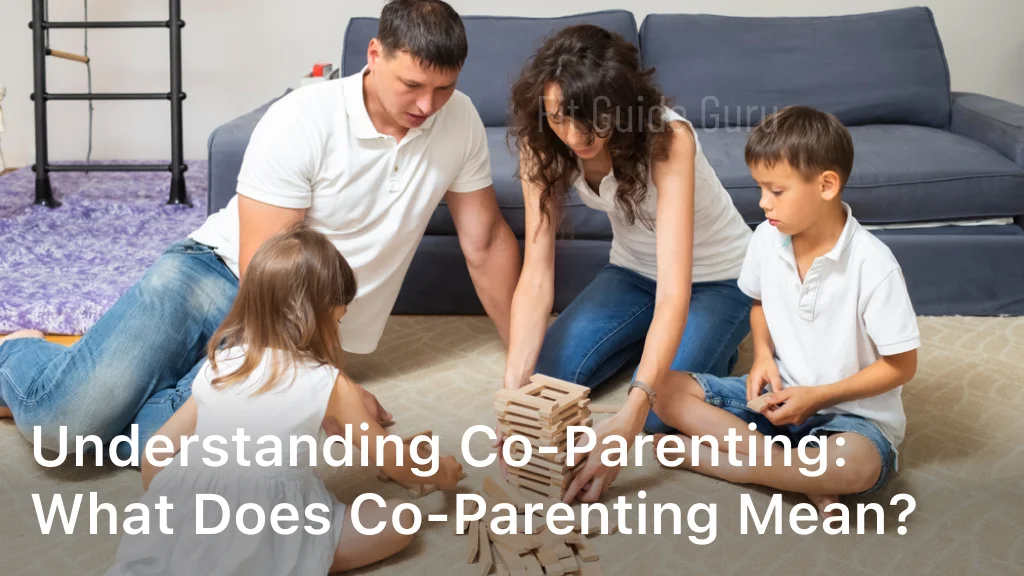What’s Foster Parents Benefits if Being a Foster Parent?

fitguideguru.com. Discover the myriad foster parents benefits and why becoming a foster parent is a rewarding journey. Learn about financial support, emotional fulfillment, and the impact on children’s lives.
Becoming a foster parent is a noble and compassionate choice that brings not only warmth to your heart but also numerous foster parents benefits. It’s a decision that can change not only your life but the lives of the children you open your home and heart to.
In this comprehensive guide, we will delve into the many facets of foster parenting, exploring the emotional, financial, and personal rewards that come with it. So, if you’ve ever wondered, “What’s Foster Parents Benefits if Being a Foster Parent?” – you’re about to find out.
What is the Foster Parents Benefits?
Emotional Fulfillment
Foster parenting provides a profound sense of emotional fulfillment. It allows you to make a lasting impact on a child’s life, offering them love, stability, and a safe environment. The joy of seeing a child blossom under your care is immeasurable.
Financial Support
Foster parents benefit from financial support to ensure the child’s needs are met. This support often covers essentials such as food, clothing, and healthcare, reducing the financial burden on the foster family.
Support and Training
Foster parents have access to valuable training and support services. These resources help them better understand the unique challenges that may arise and equip them with the skills to provide the best possible care.
Educational Opportunities
Foster children often receive additional educational support, including tutoring and assistance with school expenses. This helps them thrive academically, setting the stage for a brighter future.
Community and Networking
Foster parenting connects you with a supportive community of fellow foster parents. Sharing experiences and insights can be invaluable, making your journey as a foster parent less daunting.
Impact on Your Family
Building Empathy
Fostering fosters empathy and compassion in your own family. It teaches children about the importance of giving, sharing, and understanding the challenges others face.
Expanding Your Family
Foster parenting can lead to adoption, allowing you to expand your family and provide a forever home to a child in need.

Financial Benefits of being a Foster Parent
Becoming a foster parent brings various financial benefits, although the primary motivation for fostering should always be the well-being of the child. Here are some of the financial benefits associated with being a foster parent:
- Foster Care Payments: One of the most significant financial benefits of being a foster parent is receiving foster care payments from the child welfare agency or government. These payments are intended to cover the costs of caring for the child, including expenses such as food, clothing, and daily necessities.
- Healthcare Coverage: In many cases, foster children are eligible for healthcare coverage through programs like Medicaid or other state-funded health insurance plans. This coverage helps ensure that the child’s medical needs are met without placing an additional financial burden on the foster family.
- Supplemental Income: Foster care payments often provide supplemental income to foster parents. While the exact amount can vary depending on factors such as the child’s age and needs, it can help offset the costs associated with fostering.
- Tax Benefits: Foster parents may be eligible for certain tax benefits. These can include tax deductions for qualified expenses related to fostering, such as mileage for transporting the child to appointments or educational expenses.
- Childcare Assistance: Some foster parents may receive assistance with childcare expenses, particularly if they have other children in the household who require childcare services while the foster child is in school or therapy sessions.
- Education Support: Foster children may receive additional educational support, such as tutoring or financial assistance for school-related expenses. This support helps ensure that the child has the tools and resources needed to succeed academically.
- Clothing Allowance: Some agencies provide a clothing allowance to foster parents to help cover the cost of purchasing clothing and shoes for the child. This allowance can be especially helpful for growing children who frequently outgrow their clothes.
- Emergency Funds: Foster parents may have access to emergency funds or grants to assist with unexpected expenses that arise while caring for the child. These funds can help ensure that the child’s needs are met in times of crisis.
It’s important to note that while there are financial benefits to fostering, the primary focus should always be on providing a safe, loving, and stable environment for the child.
Foster parents should be prepared to meet the child’s emotional and physical needs, and the financial benefits should be seen as a means of support rather than a source of income.
Additionally, the specific financial benefits and eligibility criteria can vary by location, so it’s advisable to check with your local child welfare agency or government authorities for precise information on fostering in your area.
Keep Reading : How to be a Good Foster Parent?
Frequently Asked Questions
1. What financial support is available for foster parents?
Foster parents may receive financial assistance to cover the child’s basic needs, including food, clothing, and healthcare.
2. How can I become a foster parent?
To become a foster parent, you typically need to undergo training and a home study. Contact your local child welfare agency for guidance.
3. Can I choose the age of the child I want to foster?
In some cases, you may have the opportunity to specify the age range of the child you wish to foster, but it ultimately depends on the agency’s needs.
4. What if I want to adopt a foster child?
If you wish to adopt a child you’ve been fostering, you can initiate the adoption process through your child welfare agency.
Conclusion
Becoming a foster parent is not just a commitment; it’s an incredible opportunity to make a positive difference in the lives of vulnerable children. The foster parents benefits, including emotional fulfillment, financial support, and the chance to build a loving family, are boundless.
So, if you’re contemplating this remarkable journey, take the leap and discover the rewards of being a foster parent. The love, care, and stability you provide can change a child’s world, leaving an indelible mark of hope and love.





